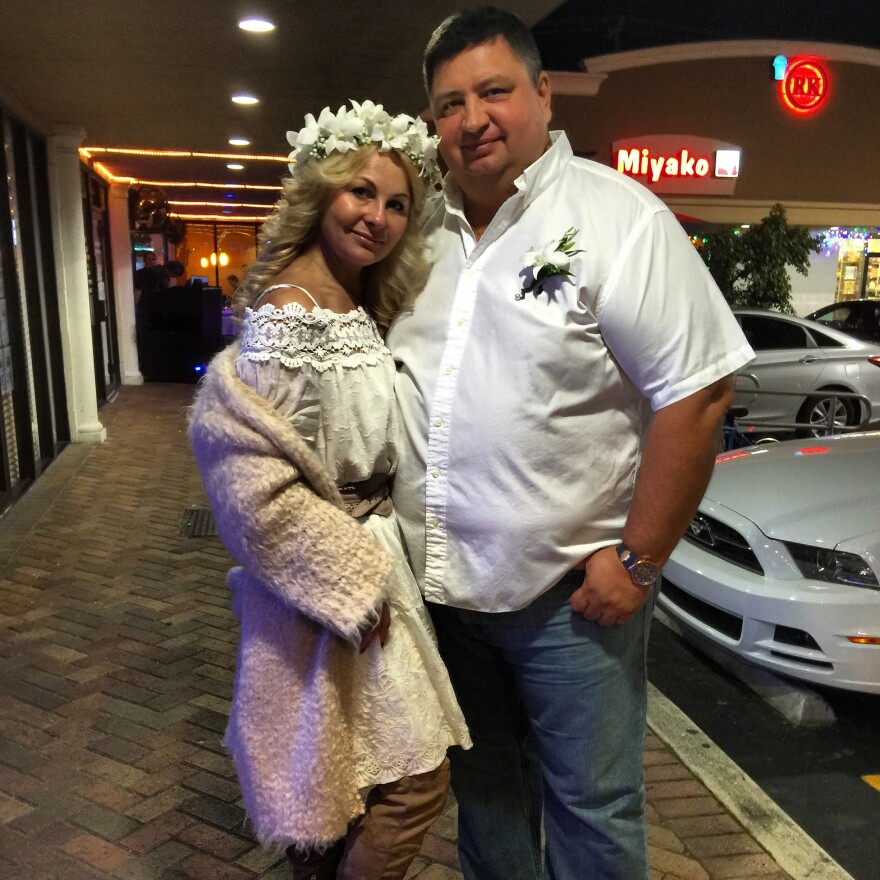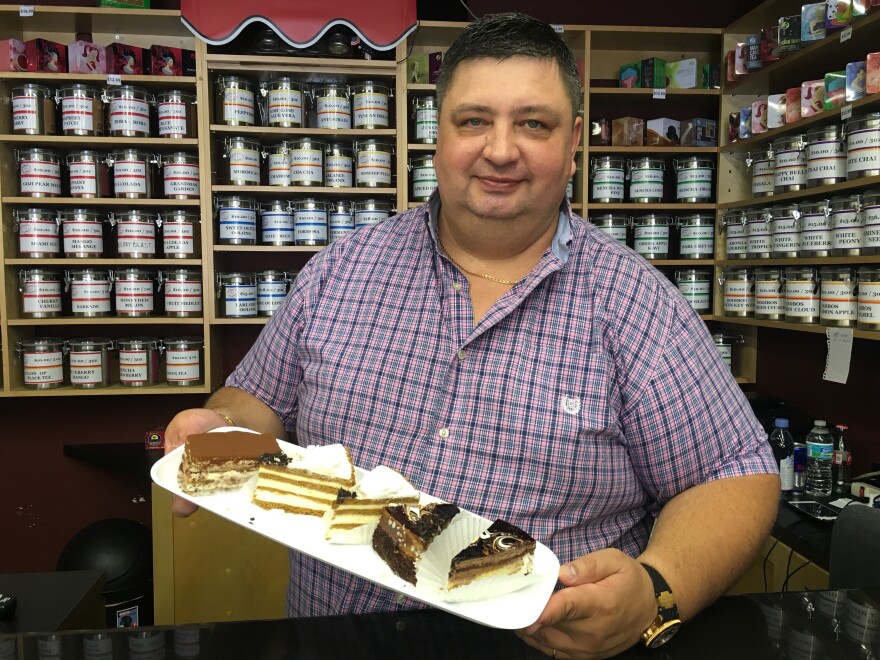“Starting all over again is hard,” Yuri says. “But the sun, the blue sky and the optimistic people here in South Florida help a lot.”
Yuri is certain: “The weather must reflect on the people.” It’s South Florida's optimistic outlook on life that he can relate to. It makes him feel a bit more at home while being thousands of miles away from Ukraine, his crisis-shaken home country.

Now he stands behind the counter of Nut Cracker, his little shop in Sunny Isles Beach, which is also a café. Customers come here for tea specialties, coffee, pastries – and for caviar, the Russian delicacy consisting of salt-cured fish-eggs. Yuri is proud that he sells about 100 different types of caviar. The fridges that hold it buzz loudly in the small space.
“Most Americans don’t understand caviar,” he says with a grin. I skip the caviar and spot a fridge full of cakes and pastries. “My wife Svitlana bakes them,” Yuri says and beams with pride as he serves me a Medovik, a multi-layered cake with honey and caramel. It’s sweet, soft and tasty. No wonder it’s one of the most popular cakes in the countries of the former Soviet Union.

Until two years ago, Yuri and Svitlana lived in the city of Luhansk in the East of Ukraine. They came to the United States every now and then to visit their son, who was studying in Los Angeles. “But the last ticket was one way,” Yuri says matter-of-fact. “Luckily, we already had a U.S. visa."
By mid-2014, it became clear that they couldn’t go back to Ukraine. Shortly after Russia had annexed the Ukrainian peninsula of Crimea in March 2014, fighting broke out in the East of Ukraine - and it is still unsafe there. "Maybe we can never go back, " says Yuri.
'There is nothing I could do. They took my business'
Back home, Yuri owned more than a dozen supermarkets and his company distributed dairy products from big international companies within Ukraine. “One day in spring 2014, bandits with rifles came and emptied out the storage,” Yuri tells me. “In there were goods worth $3.5 million. They drove away with it all in my 200 trucks, which they stole as well.”
Then they made Yuri’s company and its storage facilities their headquarter because of its generators - a huge asset in a city with a shortage of electricity. “In the cold storage room they put the bodies of their dead fighters until they could bury them,” Yuri tells me. “There is nothing I could do. They took my business."
Yuri is glad no one in his family got hurt. Unlike most people in his hometown, they could afford to start a new life and business elsewhere. In the end, he chose South Florida over Los Angeles and New York, which he also considered. “It’s warm here, light and green – and there are a lot of Russian speakers,” Yuri says. In fact Sunny Isles, where they work and live, has so many Russians that it’s called Little Moscow.
'I dream and think in Russian.'
Yuri prefers to speak Russian with me. He took English lessons, but hasn't had much of a chance to practice. “At home I speak Russian, at work I speak Russian. And I dream in Russian and think in Russian,” he says.

Being Ukrainian is important for Yuri’s identity - especially now that his country is in such a crisis. “We like to celebrate Ukrainian nights out here in South Florida, putting on national clothes.” But he knows that many people in America find it hard to distinguish and he doesn’t get upset.
“At the moment it’s a bit slow. That’s why I stand behind the counter myself in summer some days.” He is hoping that once summer ends more tourist will come, especially from Russia, wanting to buy boxes of caviar and sweets.
Despite all the worries and difficulties he is sure he and his wife will succeed in their life in the United States. “Vsyo budet khorosho,” he says. It’s Russian for “everything will turn out well.”
One Dish, One Story is part of a WLRN series on the foods and people of South Florida. This episode was written by Mareike Aden, Arthur F. Burns Fellow visiting journalist from Germany.





